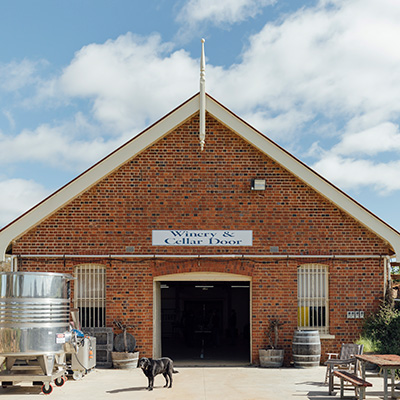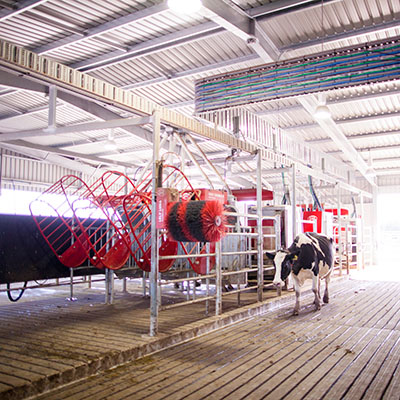Dookie campus facilities
The Dookie Campus is an agricultural facility set on the tranquil rolling hills between Shepparton and Benalla in Victoria, Australia.
Build understanding and innovate with world-class experts and equipment.
University of Melbourne students, staff and partners enjoy access to advanced R&D facilities, expert advice, and technical support. We welcome R&D partnerships or fee-for-service contracts with businesses, governments, communities, and research organisations. Our network of collaborative relationships spans the globe.
To discuss your research and innovation needs, connect with the research group under the relevant facility below. For more information about our Dookie campus, including how to get there, visit Dookie campus on the Faculty of Science website.

Research vineyard and winery
With about 400, mature (35+ years), conventionally managed vines (cultivars Sauvignon Blanc and Semillon), our research vineyard on the slope of Mount Major is suitable for winemaking studies that can be extrapolated to commercial-scale applications. Our equipment includes:
- 600L air-bag press
- 100L water-bag press
- FOSS; OenoFoss wine analysis (Technology: Mid-infrared (FTIR))
- 200L open fermentation vessels
- 6-head bottle filler & pad filter
- pumps, hoses, cleaning and manually handling equipment
- all-terrain forklift
- refrigeration system for juice, ferment, and wine
- chemistry and microbiology labs.
There are diverse vineyard regions within one hour’s drive, ranging from Rutherglen (Warm/Hot climate) to the King Valley (Temperate/ Cool climate) and our network of working relationships spans these regions and others across Australia.
Contact: Chris Barnes

Robot dairy
Dookie campus has 43 hectares of irrigated pastures and an automated diary with sophisticated systems for monitoring cow health and milk production and quality. The automatic milking system (AMS) comprising three Lely Astronaut robots, which can milk up to 180 cows, three times per day. The AMS collects a broad range of data on individual cows, facilitating precise management and research into animal nutrition, heat stress management, grazing behaviour, and integration of AMS into pasture-based systems.
Contact: Farm Systems Analysis
Animal growth, physiology and nutrition
To promote sustainable livestock production, climate change adaptation and mitigation, and global food security, we collaborate with industry to develop innovative approaches to livestock genetics, breeding, nutrition, and management. In addition to conducting research using the robotic dairy, we use a GreenFeed unit to measure enteric methane emissions of grazing animals, and climatic chambers to simulate extreme heat events.
Contact: Production Animals